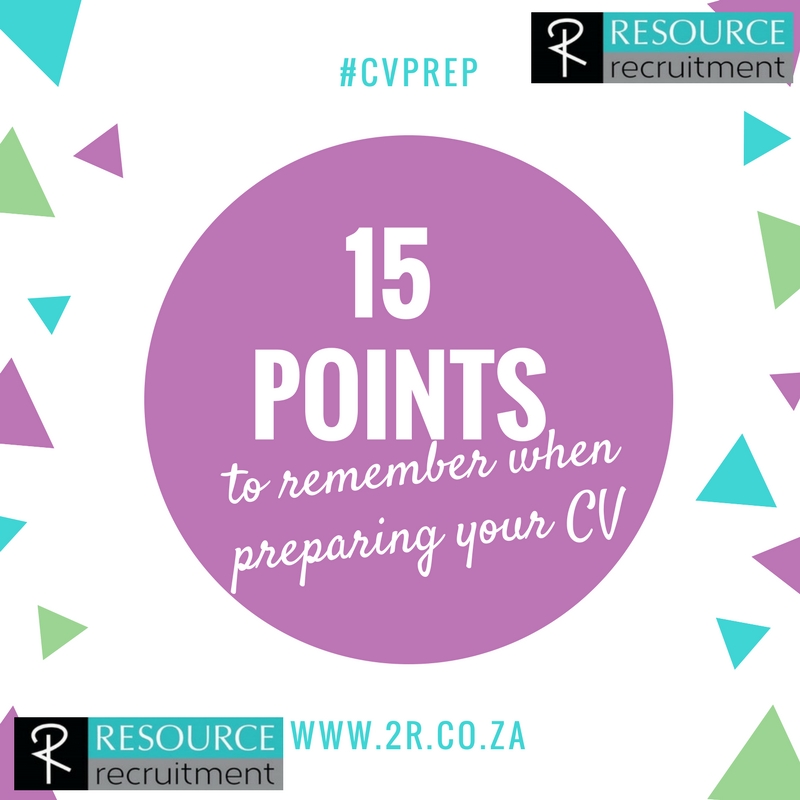
22 Feb 15 Points to Consider when Compiling your CV.
- What will your CV look like when printed in black and white? Will it still be eye catching and easy to read? Few companies will go to the cost of printing it in colour when reviewing it.
- If you are applying for jobs on line or via email- is your email address on your CV? If you are applying from Gumtree, Indeed and various other platforms, your application will not come from your personal email address, but from the portal address, so how will they be able to reply?
- If the best you can do is send an outdated, scribbled on, scanned CV, then you need to ask yourself: ”Am I serious about looking for a job?” Your CV is your first impression, and an indication of the best work you can produce, and the pride you take in your work.
- Don’t put generic comments in your covering email, such as “Application for before mentioned position” and then don’t mention what position it is. Or say “I have always wanted to work for your company” and send it to an employment agency, for a job with their clients. It makes you application insincere from the outset.
- Make sure that your residential area is always up to date. One of the biggest reasons you will not be short listed, is if your CV indicates you live too far from the position (even if you have since relocated).
- Two page CV’s were fashionable in the days of fax machines. Today, you are emailing, and companies are “searching” your CV for key words. If the key words are not there, you are not going to be short listed. A 3-5 page CV is more than acceptable.
- Don’t waste one of your 3-5 pages on a cover page, with just your name typed on it- save this for when you deliver a printed copy.
- Don’t get so creative with the layout, that your skills and experience are missing or hard to find.
- If you want to make it personal, add a photo, not clipart. (But don’t take a selfie in a public bathroom or with your cycling helmet on!)
- Keep it to the point and factual. Save the essays and long stories for the interview.
- Start with your most recent job first.
- Make sure that you put dates worked at previous companies on your CV
- If you don’t know what to say your reason for leaving is, leave it off. Putting “Personal issues”, “Horrible work environment”, “Company involved in unethical business practice”, “Dismissed” or “Discrimination”- says more about how fussy, difficult, disloyal and potentially hard to manage you potentially are, than anything about the company. Save it for the interview when you have a change to explain yourself and put it in context.
- Make sure you list all your computer skills on your CV.
- The Golden Rule when drawing up a CV- “If it’s not on your CV, you never did it!!”






